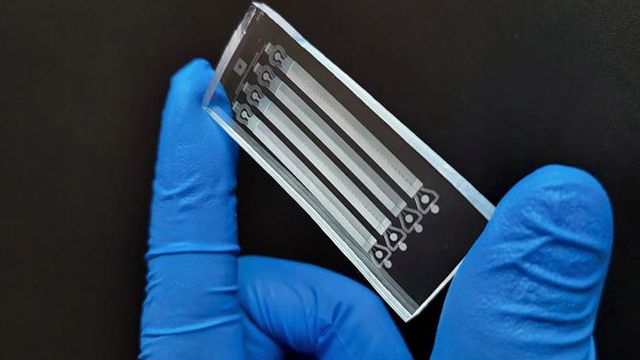Infectious Diseases – News and Features

News
Mutant Immune Cells in the Brain Heighten Alzheimer's Risk
A new MIT study finds that microglia with mutant TREM2 protein reduce brain circuit connections, promote inflammation and contribute to Alzheimer’s pathology in other ways.

News
Flexible Antibacterial Material Could Be Prevent Infection With Internal Medical Devices
Researchers have developed an effective and flexible antimicrobial material that could be used to coat medical devices placed inside the body, helping to prevent infection without drugs.

News
Cancer Immunotherapy Shows Promise Against Tuberculosis
A promising new cancer therapy also appears extremely potent against one of the world’s most devastating infectious diseases: tuberculosis (TB). Scientists found the therapy dramatically reduces TB growth, even for bacteria that are drug-resistant.

News
3D Genome Folding Helps Preserve Identity When Cells Divide
A new MIT study proposes a theoretical model that helps explain how cellular memory is passed from generation to generation when cells divide.

News
Hormone Therapy May Be Potential Treatment for Liver Fibrosis
Researchers have discovered previously unknown changes in a specific type of liver cells, potentially opening avenues for a new treatment for liver fibrosis, a potentially life-threatening condition.

News
Novel Microfluidic Method Optimizes Stem Cell Extraction for Advanced Cell Therapies
Traditional bone marrow aspirate (BMA) stem cell extraction methods are complex, time-consuming, and yield poor results due to antiquated centrifugation techniques.

News
Cannabis Chemicals May Have Evolved to Deter Insect Pests
Cannabinoids may have evolved to deter pests from chewing on them, according to experiments that showed higher cannabinoid concentrations in hemp leaves led to proportionately less damage from insect larvae.

News
Inability of Macrophages To Penetrate Tumors Could Explain Cell Therapy Failures
Macrophages, a type of white blood cell that can destroy invading pathogens, have an innate ability to infiltrate tumor cells, making them a potentially important tool in treatments that use transplanted cells to fight disease, known as cell therapy.

Article
A Personalized Approach Could Help To Tackle the Global AMR Crisis
Antimicrobial resistance (AMR) is threatening the effective treatment and prevention of a wide range of infections, with serious potential consequences for health and the economy. We spoke to Dr. Alaa Riezk, research associate at the Centre for Antimicrobial Optimisation (CAMO), Imperial College London, about the problem of usage and dosage of antimicrobials and AMR and how he and the team are working to address it.

News
An Intravenous Needle That Softens in the Body on Insertion
Researchers have developed an intravenous needle that softens and flexes when in the body, reducing the risk of damage to the blood vessel as patients receive medication.
Advertisement



